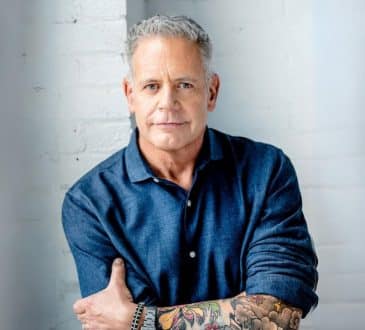CSR: WHAT YOUR CONSUMERS AND WORKFORCE ARE EXPECTING OF YOU

When it comes to social responsibility, consumers are looking for brands to show them — not just tell them — what they’re doing. Greenwashing and token corporate social responsibility (CSR) initiatives are not enough. In this digital world, where authenticity is the buzzword, businesses must keep up with growing demands for ethical behaviour and transparency in everything from employee rights and gender equality to supply chain management.
Moreover, the impact of global pandemic, with its economic, social and political upheaval across the world has ushered in a new era for CSR, which has been evolving over the last decade, but current events are bringing about rapid change and heightened consumer expectations. Audiences have long demanded that companies contribute to the greater good through their business practices and by leveraging their influence.
Recent calls for stronger conversations around diversity, inclusion and racial justice are further proof that CSR must be ingrained into every level of your business. Consumers and employees see through platitudes and hold companies accountable when their stated values and actions do not align.
Many organizations state their dedication to a culture that values and empowers employees; this means your employees, must be an important part of CSR. Businesses can build trust with employees, particularly millennials and Generation Z, through CSR. Employees want to work for companies that take a stance on important issues. This means that CSR is a valuable recruitment tool. Employees want you to give them opportunities to make a difference, not only for the company, but for communities.
Employees also tend to perform better when they engage in socially responsible activities. Good CSR programmes are proven to effectively build leaders and team members more economically than things such as training and conferences. Plus, people want to work at a company who have CSR ambitions in place – as a company’s greatest asset is its people. Corporate responsibility can help a company to build the best team possible as companies which demonstrates impact initiatives, will have an easier time recruiting talent! Importantly, well designed and communicated CSR can play a positive part in boosting employee wellness.
MENTAL HEALTH AND THE UK
It has been estimated that in the UK, poor mental health costs employers up to GBP 45 billion per year. While not all mental health issues lead to sickness absences, employers are starting to recognize the importance of mental well-being for productivity, broader employee engagement, and the need to promote an open culture that breaks down the taboo on the subject. COVID-19 has brought these issues into even sharper focus, with new challenges to mental health because of the lockdown, furlough, and economic insecurity. Prioritizing workers’ mental health will be key for employers wishing to reduce absenteeism, increase productivity in the workplace, and retain the best talent. As a result, many organizations are now building mental health awareness and initiatives into their CSR initiatives.
And consumers are no different and by 2025, three-quarters of the UK’s working population will be millennials that want to buy from companies that have a purpose beyond their products and operations.; this was from a 2018 new report by communications agency Fleishman Hillard Fishburn.
One of the best guides to understanding the new consumer expectations of brands in the wake of COVID-19 has been the Edelman Trust Barometer Special Report: Brand Trust and the Coronavirus Pandemic published in March 2020. It has strong insights into how consumers want brands to step up and protect their employees, work with governments, and direct their enormous resources to help solve problems during this crisis. It highlighted that people wanted brands to use their power to educate (85 percent), particularly now in this moment of deepest global crisis. The public wants brands to step up, keep them safe, guide and help. Brands that act in the interest of their employees, stakeholders and society at large will reinforce their expertise, leadership and trust and immeasurably strengthen the bond they have with consumers.
THE STRENGTH OF PURPOSE
Another, global report, The Strength of Purpose commissioned by the Zeno Group, surveyed more than 8,000 individuals across eight markets (US, Canada, UK, France, China, India, Singapore, Malaysia), having them rate more than 75 brands on their perceived strength of Purpose. It reveals businesses benefit when they have purposeful brands, as consumers are four to six times more likely to buy from, trust, champion, and defend companies with a strong Purpose. This is another tick for CSR, validating it’s a must for long-term business and communications strategies.
Consumers across generations and geographies recognized the strength and importance of purpose and indicated they would hold brands accountable. These generations expressed important considerations for the role of companies in society, indicating that brands need to prioritize Purpose over profit; only when a brand has a positive impact is it allowed to make a profit.
It also showed that consumers are not afraid of boycotting, as the majority of consumers (76%) had taken action in response to a brand doing something they disagreed with, including no longer buying from the brand, switching to a competitor, or discouraging others from buying from or supporting that brand. Another interesting finding is that more than three-quarters (77%) of consumers believe a company’s leader should embody their brand Purpose and mission in their personal life.
This global crisis will fundamentally change how we think, behave, and consume. There is no rapid return to normal. The new world will have trust at its core, with the brand mandate expanded to solve problems for all, protect all, care for all, collaborate with all and innovate in the public interest.
Written by Sangeeta Waldron.
Bring the best of the CEOWORLD magazine's global journalism to audiences in the United States and around the world. - Add CEOWORLD magazine to your Google News feed.
Follow CEOWORLD magazine headlines on: Google News, LinkedIn, Twitter, and Facebook.
Copyright 2025 The CEOWORLD magazine. All rights reserved. This material (and any extract from it) must not be copied, redistributed or placed on any website, without CEOWORLD magazine' prior written consent. For media queries, please contact: info@ceoworld.biz











